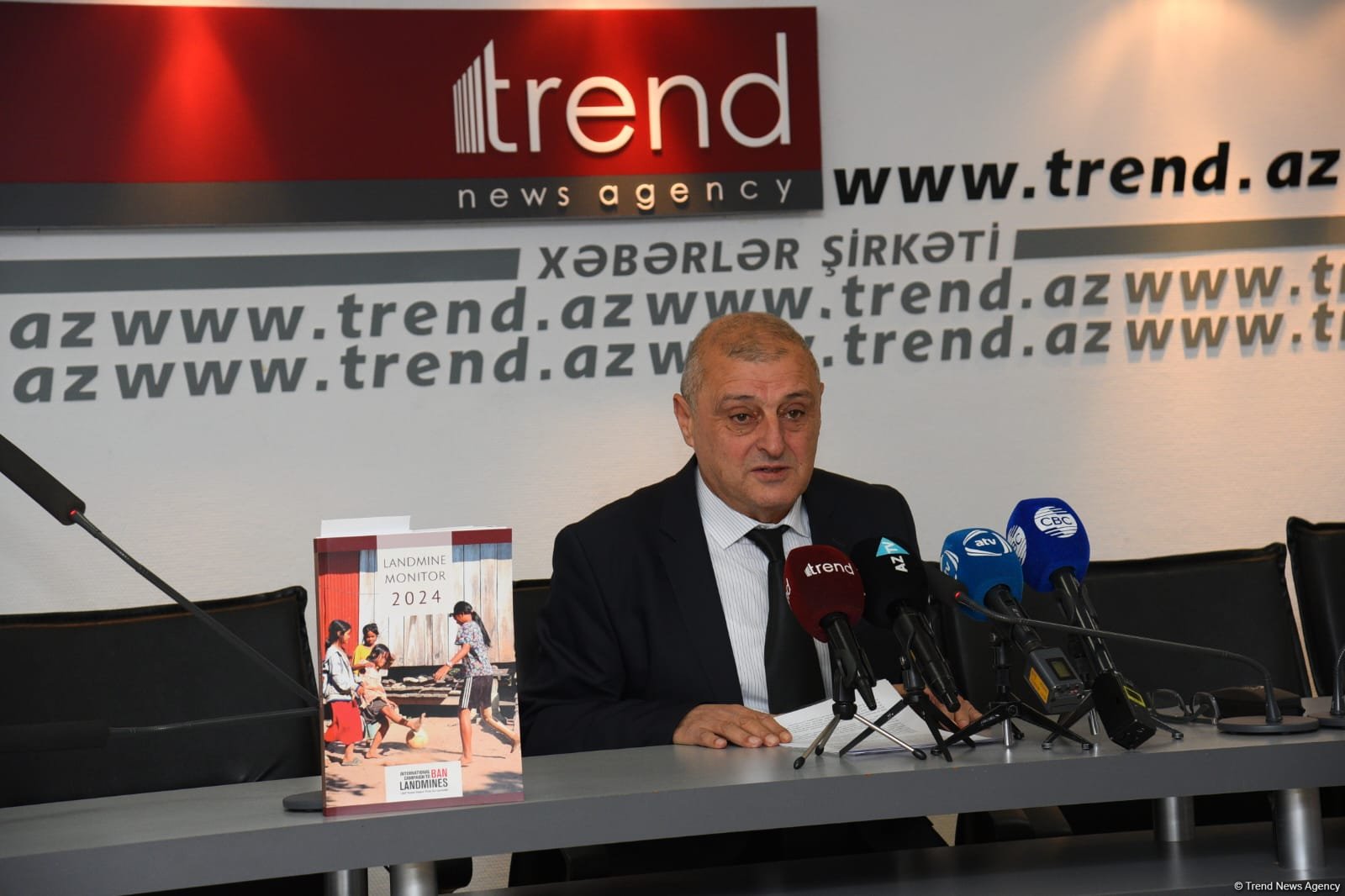BAKU, Azerbaijan, December 4. The 5th Review Conference of the States Parties to the Convention on the Prohibition of the Use, Stockpiling, Production, and Transfer of Anti-Personnel Mines and on Their Destruction took place in Siem Reap and Angkor, Cambodia, from November 24-29, Trend reports.
The Chairman of the Azerbaijan Campaign to Ban Landmines (AzCBL) Public Union Hafiz Safikhanov reported in his address at the Review Conference dedicated to the results of the Mine-Free World Summit held in Siem Reap and Angkor and the Landmine Monitor Report 2024.
Global leaders and experts focused on landmine eradication and humanitarian disarmament attended the event, which took place in Siem Reap and Angkor, Cambodia, from late November to early December.
Safikhanov emphasized that the adoption of the Ottawa Convention, which has seen eighty percent of the world's countries join the treaty, has resulted in significant progress.
Representatives from member states of the convention, observer nations, the UN agency, international organizations addressing mine-related issues, demining companies, mine victims from various countries, and media outlets attended the conference, according to the chairman.
Key topics of discussion included the implementation of the Convention’s requirements, a comprehensive approach to addressing the challenges faced by mine victims, and the condemnation of U.S. arms shipments to Ukraine involving landmines. The conference concluded with the adoption of a five-year action plan, and several countries signed a political declaration.
"Azerbaijan was officially represented at the conference, with two members of our organization also attending as NGO delegates. We held meetings with representatives from various countries and international organizations and participated in several other events. Conference attendees were given detailed information about mine-related issues, as well as reports prepared by our organization, with all questions addressed accordingly," he said.
Safikhanov emphasized that the International Campaign to Ban Landmines – Cluster Munition Coalition presented the Landmine Monitor Report 2024 to the public during the conference.
"This is the twenty-fifth annual report covering all aspects of mine action globally. The report notes that, in the 27 years since the signing of the Convention, 164 states—representing 80 percent of the world’s countries—have become parties to the Ottawa Convention. An additional 33 countries, including those in the South Caucasus, have yet to join the Convention.
Since the adoption of the Convention, both member and non-member states have allocated significant resources to mine action, showcasing the transformative power of this humanitarian disarmament treaty. However, growing global crises and increasing demands for other expenditures have made the situation even more precarious.
Safikhanov pointed out that mine contamination remains a significant issue in 58 countries worldwide, with improvised mines affecting at least 25 member states. The past year has seen the clearing of 281.5 square kilometers of land and the destruction of 160,566 anti-personnel mines. 94 member states of the Convention have eliminated 55 million stockpiled mines. The countries with the largest remaining stockpiles are Greece and Ukraine," he added.
He also underlined that, despite four non-signatory countries—Myanmar, Russia, Iran, and North Korea—deploying anti-personnel mines during the reporting period, no member states of the Convention did so.
"The number of mine-producing countries has decreased from 55 to 12. The current list of producers and buyers of anti-personnel mines includes only twelve non-signatory states: Armenia, China, Cuba, India, Iran, Myanmar, North Korea, South Korea, Pakistan, Russia, Singapore, and Vietnam.
The report also underscored the human cost of landmines, as mines and explosive remnants of war claimed the lives of 5,757 individuals across 53 countries. 1,983 people lost their lives, 3,663 sustained injuries, and the status of 111 victims is still unknown. 84 percent of mine victims (4,335 people) are civilians, with 37 percent (1,498 people) being children. Moreover, 81 percent of the victims are men and boys. The number of mine-related explosions has reached 833, the highest recorded since 2011, and this surge is particularly concerning in Ukraine," the chairman concluded.
Notably, the Ottawa Convention, which bans the use, stockpiling, production, and transfer of anti-personnel mines, was signed in Ottawa, Canada, on December 3-4, 1997, and entered into force on March 1, 1999.
Stay up-to-date with more news on Trend News Agency's WhatsApp channel














